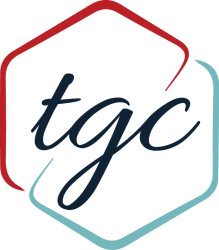Twenty years ago in my terrible twos, I was throwing obnoxious tantrums and escaping to my parents’ backyard to rummage through recycling bins.

My parents said I’d drink the last sip from Sierra Nevada Pale Ale bottles, a longtime family favorite, mistakenly believing that all things in bottles were for babies.
I now unmistakingly sip full bottles of refrigerated Sierra Nevadas, gather with fellow soon-to-be Chico State grads and have mini-frenzies regarding our impending release from college.
Usually our conversation drifts from reminiscing memories to laughing nervously about our angst of post-grad possibilities.
It seems we’re each suffering from a case of the terrible twenty-twos, an exciting yet uncomfortable phase 80-days or less from college graduation marked by frequent tantrums stemming from fear of increased responsibility and ongoing battles for independence.
Listen to the wise words of Baz Luhrmann’s “Everybody’s Free To Wear Sunscreen” while reading remedies for the terrible twenty-twos:
- Do it once. Do it right.
Be thoughtful and thorough about the genuine quality of your academics, relationships and leisure activities.
- Get to know classmates and professors, you’ll soon miss seeing them daily.
- Stop half-assing assignments, friendships, relationships, job hunting.
- Do everything to the best of your ability and always see it through.
- Learn to be alone
You’re not always going to have roommates to come home to. And “FOMO,” the signature Millennial fear of missing out, will be a short-lived justification to be overly social in the real world.Alone time is valuable. It’s a time to reflect, read, write, focus and disconnect.
And in the words of David McCullough Jr. read to think for yourself, as a matter of self-respect, as a nourishing staple of life.
- Appropriately handle the word “settle”
As a person in my terrible twenty-twos, “settle” is my least favorite word (yeah, I said least favorite). In a whiny voice say aloud: No, I do not want to settle down, settle in, settle for, settle with, settle on. No settling for me, period.
An admittedly horrible symptom of the terrible twenty-twos is the “I don’t wanna’s.”Settling is a formidable source of angst for terrible twenty-two-ers. Millennials are repeatedly hounded to never settle and to live fiercely and independently— to travel, move far away, don’t be in a relationship as it only limits your potential, make extraordinary and relatively immediate career-leaps, take bold and risky chances.
Yes, it’s good to have gumption and audacity. But realize what Mark Manson, a author, thinker and unconventional life-advice giver said: “in our instant gratification culture, it’s easy to forget that most personal change does not occur as a single static event in time, but rather as a long, gradual evolution where we’re hardly aware of it as it’s happening. We rarely wake up one day and suddenly notice wild, life-altering changes in ourselves.”Traveling, moving across the country or a new job isn’t going to instantly transform and free you of “settling.” Change your definition of “settle” to be happily satisfied.
- Wherever you go, there you are
We’re constantly bombarded with photos and stories of globe-gallivanting young adults creating irreplaceable experiences reaped only from worldly travels. It’s true that travel is a unique fosterer of a heightened state of awareness and perspective.But recognize that an authentic, meaningful, impactful, life-altering journey is not dependent upon actual motion. Whether acknowledged or not, we are constantly bound to a perpetual voyage.
“Life is what happens when you’re busy making other plans,” John Lennon.
- Learn to make hard choices
Ruth Chang said hard choices, “are hard because here is no best option. In the space of hard choices we have the power to create reasons for ourselves to become the distinctive people that we are.”
————————————–
I’ll leave you with a snippet from David McCullough Jr.—
“Climb the mountain not to plant your flag, but to embrace the challenge, enjoy the air and behold the view. Climb it so you can see the world, not so the world can see you.”
– Kelsey Anderson, editorial director



 We’ve all been there. You’ve tried on 20 different outfits and nothing looks just right. It’s either too scandalous with that plunging neckline or flat-out too frumpy.
We’ve all been there. You’ve tried on 20 different outfits and nothing looks just right. It’s either too scandalous with that plunging neckline or flat-out too frumpy.




